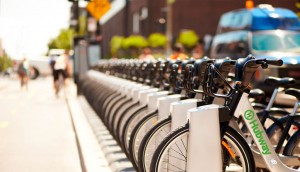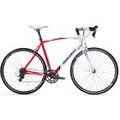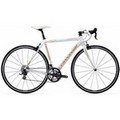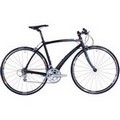 If you’ve ever been stuck walking a long distance in a city simply because there are no other options, you probably fantasized about hopping on a bike and cutting your commute time in half. Whether or not you own a bike, that fantasy is now a reality.
If you’ve ever been stuck walking a long distance in a city simply because there are no other options, you probably fantasized about hopping on a bike and cutting your commute time in half. Whether or not you own a bike, that fantasy is now a reality.
Bike share systems have been growing in popularity across the United States. The concept is simple. There are racks of bikes set up around the city, and people can rent a bike for a short period of time, even if only to get from point A to point B.
You can pay by the hour, and you can drop your bike off at any other location.
Here in Boston, the Hubway bike share system has become a force to be reckoned with. There are Hubway stations all over Boston and the surrounding areas.
They even just built one outside my own apartment, which got me thinking about the benefits and the flaws of the system.
Obviously, there are many benefits to bike shares. However, that’s not to say they don’t come with its disadvantages. I’ve been weighing the advantages and disadvantages of bike shares every since the Hubway came to Boston, and here’s what I’ve come up with.
The Pros of Bike Shares
It’s not hard to come up with the obvious benefits of a bike sharing system. Disadvantages aside, your city would greatly benefit from installing one.
Improved Air Quality
Bike share systems are great for the environment. Bikes obviously produce no emissions, and we can only assume that the people riding them would have hopped in a cab or a bus instead.
When tourists visit a city, they can either bring their cars or take public transit in. If they have their cars, they’ll drive around for their entire trip, causing more traffic and extra pollution.
If they don’t bring their cars, they’ll probably take cabs, since they’re unfamiliar with the subway system. Bike shares give these people the option to experience the city by bike, which is both less expensive and more convenient.
Even commuters cut down on pollution by using bike shares. With bike share stations all over the city, they might be more tempted to give it a try. There is less commitment to using a bike share than buying a nice bicycle, so they might leave their car at home for the very first time. This option also leads to the next benefit of bike shares.
Convenience
Bike share systems are most definitely convenient. If you commute to work in a city, you know that there are sometimes public transportation dead zones. You might get as close as you can to your office, but there is still than 15-minute walk down to your door.
15 minutes might not seem like a lot in the long run, but when you’re rushing to the office at 8:00am, it can feel like a lifetime. Bike share systems completely eliminate this problem. You can hope off the train, hop on a bike, and make a beeline for your office. If you’re lucky, there might even be another station around your destination, so you’ll only pay for the 15 minutes.
This dead zone is called the “last mile” problem in urban development. One of the major benefits of bike shares is that they eliminate the problem by giving people an option for that last leg of the commute.
Better Cycling Laws
In Boston, a lot of people commute by bike every day (check out my run down of the best Boston biking neighborhoods). Even with the hundreds of cyclists on the road every day, automobiles are still considered the dominant users of the road –and let’s face it– they are. However, as more and more people start cycling, bicyclists get a bigger voice in traffic laws.
As people that have never biked in a city before start using bike shares, more cyclists are on the road, and laws will begin shifting to protect all of the cyclists. More bike lanes, harsher penalties for endangering cyclists, and better road conditions will all be on the forefront as your city sees more cyclists.
Healthier Population
When people are given the option to hop on a bike, they might get the most exercise they’ve gotten in months. People who are sedentary in their every day life probably won’t go out and buy a bike. However, bike shares provide an easy option, and they might actually enjoy the workout.
The Cons of Bike Shares
I hate to dis such a positive improvement to my city, but as a cyclist, I have noticed some problems with the Hubway system, and with bike shares at large.
No Helmets
When you own your own bike in any city, you also own a helmet (and if you don’t, you need to buy one now!). Any smart city biker knows that a helmet could save your life, even in the most minor accident. When people stop off at a bike share station for the last two miles of their commute, they probably didn’t lug a helmet with them the rest of the way.
Only 20% of Hubway riders in Boston bike with helmets on. In other words, only eight out of every ten bike-share-users that are riding in heavy traffic are protected in the event of an accident. Not wearing a helmet in any city could get you killed, and it also places a heavy burden on drivers should anything happen.
If a Hubway rider accidentally hits a pothole too hard and falls into oncoming traffic, we all know what will happen if he or she isn’t wearing a helmet. It could have serious and long-lasting effects on the driver that hit them, and it could also ruin the bike share system for all other users.
Check Out REI’s Selection of Bike Helmets![]()
First-Timers
When I commuted by bicycle from Cambridge to Boston for the first time four years ago, I was terrified. Cars whizzing by, potholes to dodge and the fatigue of thirty minutes of exercise. Phew! I’m exhausted just reliving it! Of course, the more I biked, the more confident I became, and I now consider myself a seasoned urban biker.
Most people are horrible bikers on their first few bike rides around any city. They’re scared of cars, they go dangerously slow and they make careless decisions simply because they don’t know what to look out for. I have been cut off by many Hubway cyclists on my commute simply because they were too concerned with checking for cars, and forgot to check for fellow cyclists.
Other Hubway cyclists make quick turns up on to the sidewalk when the stress of the bike lane is too much, which even puts pedestrians at risk for getting hit.
People who are biking in a city for the first time put everyone else on the road at risk. Drivers, cyclists, and pedestrians are in harm’s way when a first-time cyclist makes a careless decision. That risk is monumentally larger when these bikers are in a new city for the first time. They are unaware of traffic laws and unfamiliar with the streets.
Despite my concern about the safety of other cyclists and bike share users themselves, I do believe that the benefits of a bike share system outweigh the disadvantages. Essentially, the pros do outweigh the cons:
Pros:
- Improved air quality
- Convenience
- Better bike Laws
- Healthier people
Cons:
- First-time bikers
- No helmets
What it comes down to is that bike share users should fully learn the rules of the road before hopping on a bike.
Every city should have a bike share system, as long as every bike-share-user remains alert, follows the city’s laws and wears a helmet.




[…] Many of us already share our bikes, but we also know that it can be a hassle. Coordinating locations for pick-up, lugging bikes from door to door, or sharing keys. The BitLock makes it super easy. You can share your app with a friend and then all they need to do is look up where your bike is located and they’re good to go. […]